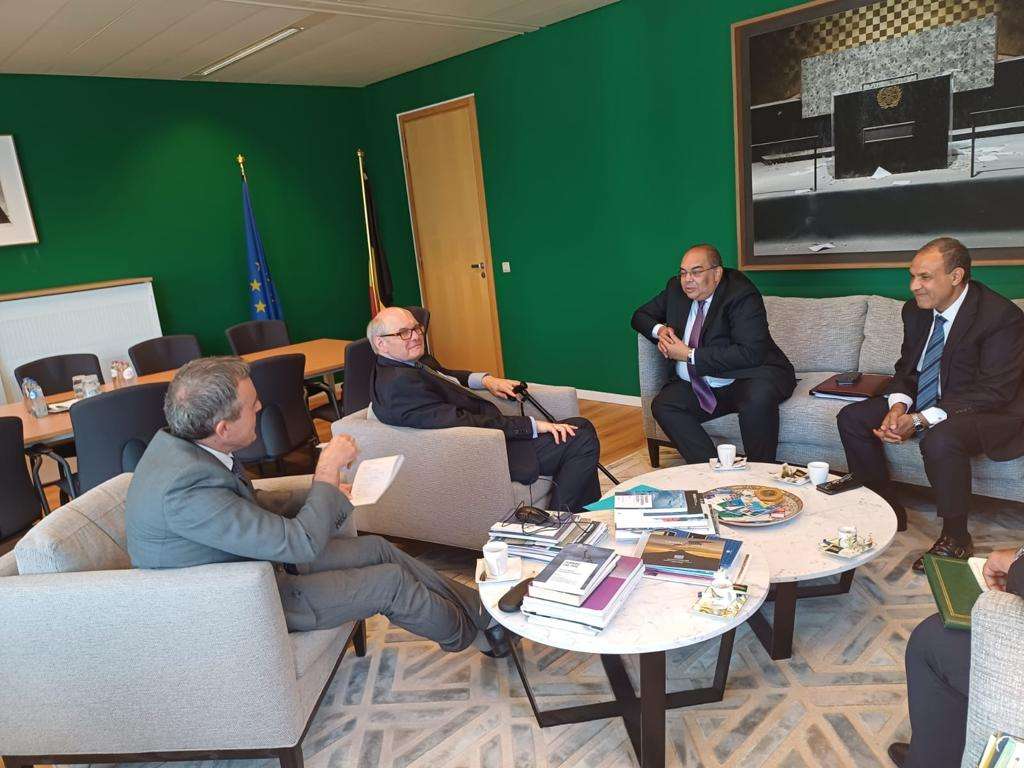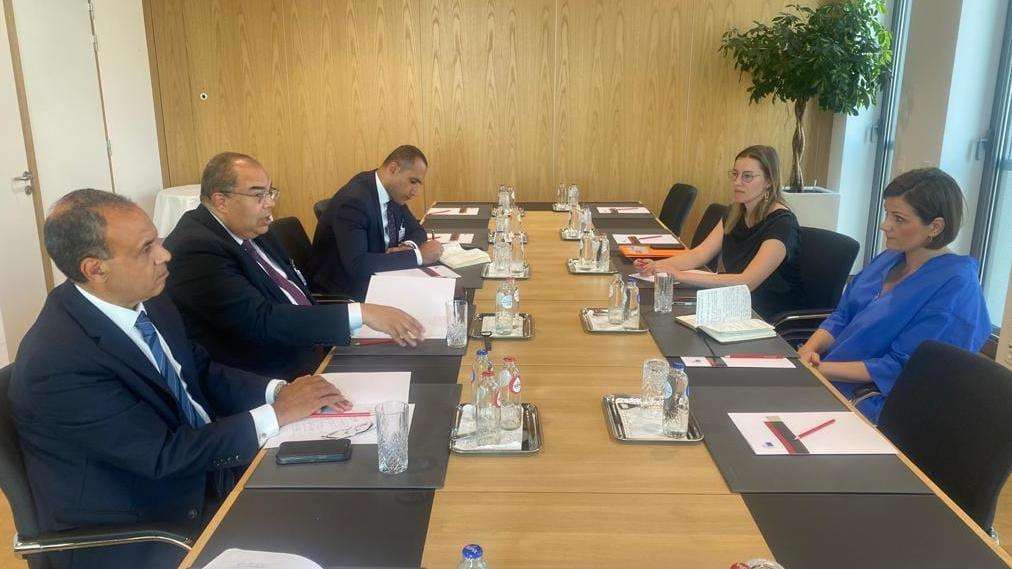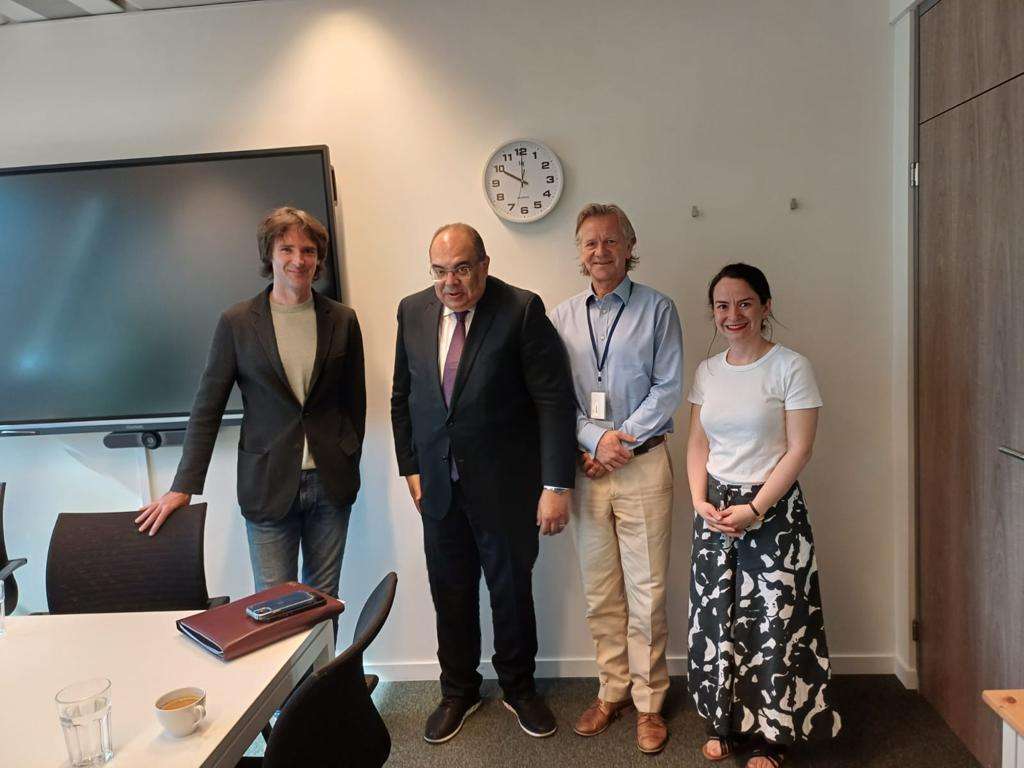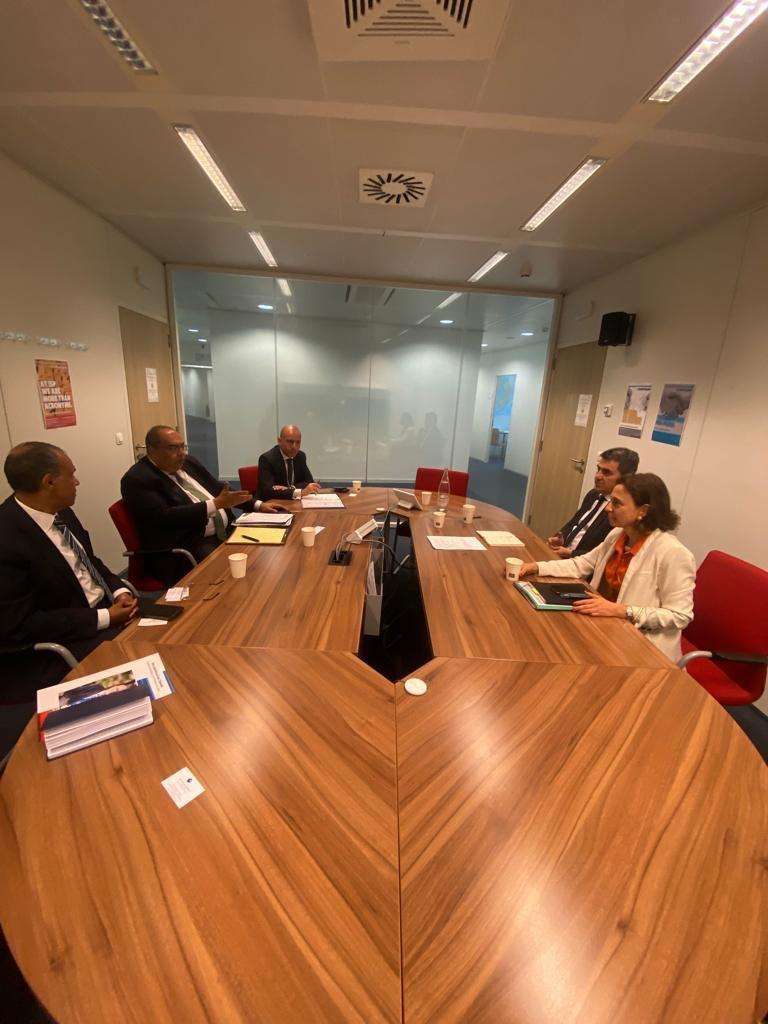Dr. Mahmoud Mohieldin Discusses with European Officials Mobilizing Finance and Investments for Climate Action
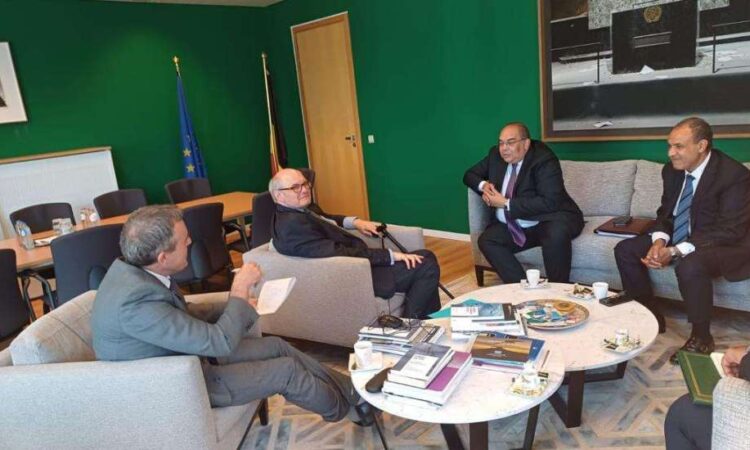
Dr. Mahmoud Mohieldin, UN Climate Change High Level Champion for Egypt and UN Special Envoy on Financing 2030 Sustainable Development Agenda, discussed with European officials ways to mobilize finance and investments for climate action, and highlighted the most important energy and climate initiatives in Africa, which represent great cooperation opportunities with the European side.
This came during the second day of his visit to the Belgian capital Brussels, where the Egyptian Embassy organizes a number of high-level meetings between the climate champion and a group of European officials and members of the Belgian government concerned with climate and energy issues, in addition to his participation in a number of important meetings and conferences during the visit.
Mohieldin, while meeting John Berrigan, Director-General of Financial Stability, Financial Services and Capital Markets Union at European Commission, stressed the importance of providing the necessary financing to confront climate change and moving forward with the implementation of the commitments agreed upon during COP27 in Sharm El Sheikh, as well as working to make the desired progress in adaptation and mitigation.
Mohieldin shed light during the meeting on the Africa Carbon Markets Initiative (ACMI) launched during the Sharm El Sheikh conference and is based on expanding the establishment of voluntary carbon markets in Africa in a way that enhances its ability to finance climate and development action.
For his part, Berrigan highlighted the efforts of the European Commission to prepare the EU Taxonomy to support companies and investors to identify environmentally sustainable activities and prioritize the most needed sectors to sustainable investment.
Mohieldin also met with Stefano Grassi, Head of European Commissioner for Energy Office, where the climate champion highlighted Africa potentials in the field of green hydrogen, especially export capacities, and the possibility of supporting European energy security in light of the need of EU countries for green hydrogen produced in Africa.
Both sides stressed the need to work to secure the required financing for climate action by ensuring that all parties adhere to their financial commitment and work to bridge the financing gap that does not help to face the challenges of climate change, noting the importance of strengthening the role of European financing institutions, foremost of which is the European Investment Bank.
The meeting touched on the African Carbon Markets Initiative, which represents an opportunity of cooperation between Africa and the European Union that can provide financial and technical support required to strengthen the efforts of African countries in this field.
Mohieldin met with Didierek Samson, Head of the Office of the Vice President of the European Commission on the European Green Deal, and Kurt Vandenberghe, Director General of the General Directorate of Climate Action. The meeting dealt with the ongoing preparations for the COP28 in Dubai next November, and the coordination between the Egyptian and Emirati presidencies of COP27 and COP28 to ensure building on the outputs of Sharm El Sheikh conference and work to speed up their implementation in areas of mitigation, adaptation, loss and damage, and financing.
The meeting also focused on the need to move forward with activating the Loss and Damage Fund, launched during COP27, by finding sufficient financing to support the most vulnerable countries, mobilizing funds through innovative and concessional financing, strengthening the role of MDBs and IFIs, and scaling private sector participation to ensure that the various challenges of climate change are effectively addressed.
The meeting highlighted the upcoming Paris Summit which may bring a new global financial pact.
During his meeting with Manon Barthod, Advisor to the President of the European Council, Mohieldin confirmed the importance of focusing on innovative financing mechanisms, activating debt swaps for investment in nature and climate, encouraging the private sector to make more investments into climate action, and strengthening the role of IFIs and MDBs in financing and implementing climate projects through adopting new policies for concessional financing.
The discussions also dealt with the developments related to the carbon markets, where Mohieldin reviewed the updates in activating ACMI, and the concerns of the Carbon Border Adjustment Mechanism (CBAM). The meeting also touched on the activation of the Loss and Damage Fund.
Mohieldin was keen to meet Ambassador Gislan Dahoub, Director General of the Multilateral Affairs Department and Globalization at the Belgian Ministry of Foreign Affairs. Mohieldin highlighted the efforts made during the current Egyptian presidency of COP27 and the importance of the results of these efforts to advance the global climate action process, especially in the fields of loss and damage, adaptation and resilience.
During the meeting, Mohieldin confirmed the strong link between the implementation of climate action and the achievement of the Sustainable Development Goals (SDGs), and the importance of focusing in environment, clean energy projects and other green transition activities on the development goal.
The climate champion also highlighted the necessity of concerted international and regional efforts to build capacity, provide technical support and training to climate action implementers, whether at the level of individuals, companies, governments, decision makers and financing institutions, as well as exchanging experiences in the field of technical standards and systems related to climate action, and concerting efforts to provide the necessary funding.
Mohieldin also participated in the Brussels Urban Summit, with about 2,000 heads of local councils and mayors in cities and capitals around the world gathered to discuss ways to develop sustainable cities.
He also participated in the expanded meeting of the directors and representatives of the Business Leaders Group of the Cambridge Institute for Sustainability Leadership, with the participation of representatives of European companies concerned with green transition and sustainability.
The meeting focused on ways to provide more opportunities for the private sector to engage strongly in financing climate-related green projects by injecting investments based on environmental standards, which contributes to achieving the goal of net zero by 2050.
The meeting stressed the important role of universities, academic experts and research centers in providing climate solutions, and confirmed the need of enhancing cooperation between Europe, Africa and the Arab region to apply these solutions.
